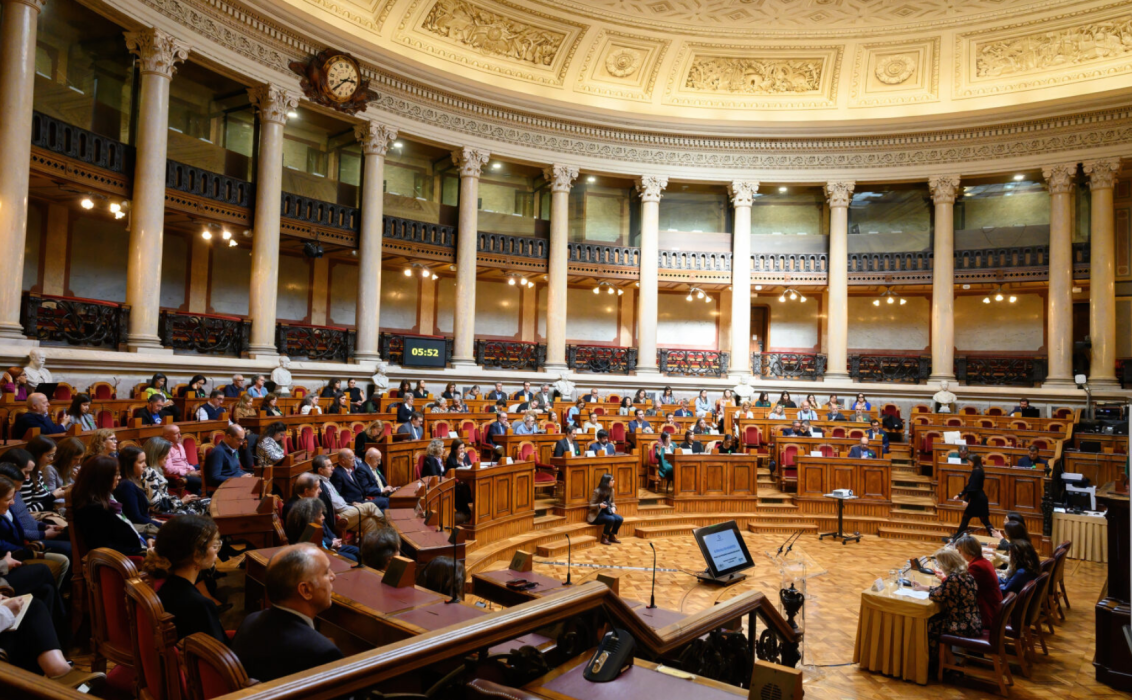A case study of action at national level, leveraging the European Parliament Resolution on Diabetes of November 23, 2022.
What happened?
On November 17, 2023, on the occasion of World Diabetes Day, APDP organised an event – The Drama of Diabetes – Why do we need a National Resolution?” at the Portuguese Parliament. The event gathered representatives from all political parties, from the majority of Parliamentary Committees (10 of 12) and from the European Parliament. This parliamentary session explored diverse facets of the diabetes reality, including funding, access to healthier food options and regular physical activity, urban planning supporting healthier lifestyles as well as stigma and discrimination and the need for more person-centred, integrated care. The session also highlighted the importance of redefining the healthcare systems and tackling the socio-economic determinants of health, which have such a critical impact on the development of the condition and the health outcomes of people living with it, and the need to co-create responses with the local governments.
What was the objective?
As the session demonstrated, tackling diabetes requires a whole-of-society, whole-of-government approach, central and local. The prime objective of the event was to discuss how to provide a comprehensive response to diabetes in Portugal, making sure that all relevant Parliamentary Committees were involved, rather than simply focusing on the health committee. The session served to defined concrete steps that can help policy-makers and society look at diabetes in a different way.
The goal is to have a future Resolution on diabetes tabled and published by the Portuguese Parliament, and finally to foster commitment for policies that effectively address the diabetes drama.
What was the link to the European advocacy work?
To organise the session and to support APDP’s ask for a national resolution, APDP sought to gather support from Portuguese Members of the European Parliament who were originally involved in the European Parliament Resolution’s approval. During the session, one of the MEPs also explained the relationship between the national and pan-European parliaments, while another presented the objectives of the European Parliament Resolution.
The European Parliament Resolution served as an example from which APDP wanted to extrapolate to the Portuguese scenario.
How did it come together?
The APDP Board of Directors made a first contact with the Parliamentary Health Committee. Subsequently, the Board was referred to the Group of Deputies responsible for organising Parliamentary events and had a first briefing meeting.
Afterwards, it took many phone calls and emails to be able to hold the session. Just one month before, APDP finally obtained the confirmation needed and started to work with the Public Affairs Department of the Portuguese Parliament for its concretisation.
APDP invited several academics, known for their specialised work, and members of civil society organisations to attend and speak at the session. Each table had its presidency held by one member of a Parliamentary Committee.
It was a hard journey, but the outcome was very positive.
What is the outcome of the parliamentary session and what are the next steps?
The mood after the parliamentary session was very positive. The next step will be the publication of the contributions made during the session, for which APDP counts on the support of the Portuguese Parliament.
As there will soon be new elections to the Portuguese Parliament, APDP now will advocate to the new Parliament for the approval of the Diabetes National Resolution.
APDP will also develop a campaign to get global support from its community and other institutions to call policymakers and stakeholders to action and will monitor all policy initiatives towards the Resolution goals.
